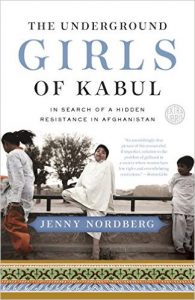-
Search It!
-
Recent Entries
-
Links
Monthly Archives: August 2016
Welcome, Titans!
Welcome to the first day of the Fall 2016 semester! It’s going to be a great year. The Ames Library is open normal hours starting today. With a few exceptions (found here) we’ll be open the following hours until the end of exams.
Fall & Spring Semester
- Sunday 12:00 p.m. – 1:30 a.m.
- Monday – Thursday: 7:45 a.m. – 1:30 a.m.
- Friday: 7:45 – 10:00 p.m.
- Saturday: 10:00 a.m. – 10:00 p.m.
Posted in Ames Highlights
Women’s Power | Women’s Justice
The annual theme of the 2016-2017 academic year is Women’s Power | Women’s Justice. A shared intellectual theme encourages classes to come together to explore a nuanced, intersectional concept. The Ames Library is happy to support faculty and students with diverse collections and access to materials from across the globe. Each Thursday, we’ll feature one title from our collection, which can be checked out by anyone from IWU. Think there’s something we should have, but don’t? Let your librarian know and we’ll work with you to make our collection as representative as possible.
Read the full description of the IWU annual theme here.
Our first featured book was read by all incoming first year: The Underground Girls of Kabul: In Search of a Hidden Resistance in Afghanistan by Jenny Nordberg.
From the book cover: “In Afghanistan, a culture ruled almost entirely by men, the birth of a son is cause for celebration and the arrival of a daughter is often mourned as misfortune. A bacha posh (literally translated from Dari as “dressed up like a boy”) is a third kind of child –  a girl temporarily raised as a boy and presented as such to the outside world. Jenny Nordberg, the reporter who broke the story of this phenomenon for the New York Times, constructs a powerful and moving account of those secretly living on the other side of a deeply segregated society where women have almost no rights and little freedom.
a girl temporarily raised as a boy and presented as such to the outside world. Jenny Nordberg, the reporter who broke the story of this phenomenon for the New York Times, constructs a powerful and moving account of those secretly living on the other side of a deeply segregated society where women have almost no rights and little freedom.
The Underground Girls of Kabul is anchored by vivid characters who bring this remarkable story to life: Azita, a female parliamentarian who sees no other choice but to turn her fourth daughter Mehran into a boy; Zahra, the tomboy teenager who struggles with puberty and refuses her parents’ attempts to turn her back into a girl; Shukria, now a married mother of three after living for twenty years as a man; and Nader, who prays with Shahed, the undercover female police officer, as they both remain in male disguise as adults.
At the heart of this emotional narrative is a new perspective on the extreme sacrifices of Afghan women and girls against the violent backdrop of America’s longest war. Divided into four parts, the book follows those born as the unwanted sex in Afghanistan, but who live as the socially favored gender through childhood and puberty, only to later be forced into marriage and childbirth. The Underground Girls of Kabul charts their dramatic life cycles, while examining our own history and the parallels to subversive actions of people who live under oppression everywhere.”



